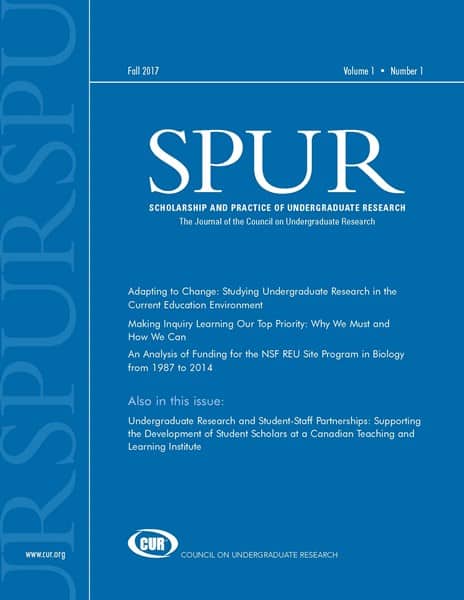SPUR (2017) 1 (1): https://doi.org/10.18833/spur/1/1/5
Programs involving research experiences for undergraduates (REUs) typically reflect either university-sponsored programs or programs funded by the National Science Foundation (NSF) that aim to facilitate students’ researchbased skill development. Despite the prevalence of research supporting the effectiveness of these programs, little research has compared the programs or evaluated the impact of differing REU models on gains in student research skills. This article examines gains made in research-based skills and experiences by students who participated in a university-sponsored or an NSF-funded REU program in engineering at a large research university. Students completed measures of research-based experiences, openness to research collaboration, and likelihood of pursuing graduate school activities prior to and after completing the research programs. Students also rated the effectiveness of core REU elements at program completion. Students participating in both REU programs demonstrated significant gains in a measure of research-based experience. Students participating in the NSF-funded REU reported higher gains in specific research-based skills compared with students participating in the universitysponsored REU. Student ratings of the openness to research collaboration and likelihood of pursuing graduate school were comparable across REU programs.
More Articles in this Issue
No posts found


